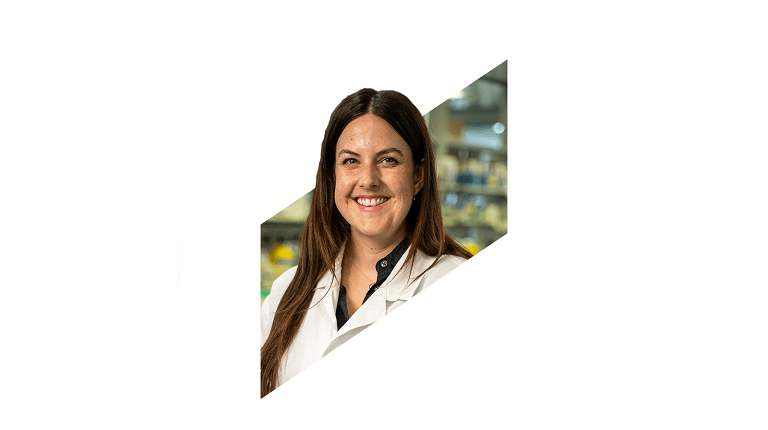Dr Clare Weeden - Biography
WEHI, Melbourne
2025 CSL Centenary Fellow

Lung cancer remains our deadliest cancer, despite the reduction of smoking in recent decades. Twenty-five per cent of people with lung cancer have never smoked.
For the past 12 years, Dr Clare Weeden has been on a mission to understand the cellular changes that lead to lung cancer and to work out how to detect, stop and even reverse those changes. Along the way she has helped transform our understanding of how all cancers develop.
Society has a negative attitude to lung cancer she says. “We sometimes regard it as ‘self-inflicted’, a consequence of smoking, and we’ve underinvested in understanding the underlying causes.” As a young researcher she was angry about the lack of attention to the disease and for her PhD decided to investigate lung cancer in people who have never smoked.
That led to a post-doctoral position at the Crick Institute in London and a series of high impact papers that have transformed our understanding of the disease.
“In several cities around the world, lung cancer is on the rise in people who have never smoked. We discovered that about one in 500,000 lung epithelial cells carries a cancer-causing mutation. We have trillions of lung cells, so that’s a lot of potentially cancerous cells. And we showed that exposure to air pollution was the trigger to awaken these cells,” Dr Weeden says.
We used to think that cancers developed following rare cellular mutations. Thanks to the work of Dr Weeden and others, we now know that these mutations are common, found in billions of cells in an average adult. Our bodies have a host of techniques to ensure that the cells with mutations don’t affect our tissues. That’s especially true of the epithelial cells lining our lungs. They are like quarantine officers, challenged by dust, pollen, viruses and pollutants in every breath.
“So, the cells lining our lungs will have these mutations and our bodies keep them under control until an environmental factor such as air pollution disrupts the cells and the layers of protection break down, allowing cancer to develop,” says Dr Weeden.
“The nature of the challenges our lung cells face is also changing,” she says. “A hundred years ago, our cities suffered from pollution from burning coal. Then particles in diesel fumes became important. Today, with climate change, our lungs face new challenges from, for example, bushfire smoke. We need to understand the effects of these pollutants on lung cells and how we can mitigate these effects.”
Dr Weeden has returned to WEHI in Melbourne to set up her own research laboratory. With the help of her CSL Centenary Fellowship, she plans to determine how the chromatin that packages up our DNA is changed by inflammation in lung cells, creating a cellular ‘memory’ of inhaled exposures that can later lead to cancer. Then she will investigate how these cellular changes initiate cancers and how cells then become resistant to targeted therapies.
“Cellular memory allows immune cells to respond more rapidly to a challenge it has previous encountered, such as a virus. We now propose that epithelial stem cells in our lungs have an epigenetic memory of past events, that may prime them for cancer,” she says.
“I also want to see if we can reduce the risk of these changes in periods of high exposure, such as high pollution days or bushfires.”
Dr Weeden’s ultimate career aim is to determine if aberrant lung cell states are reversible, to allow for potential early intervention and detection of lung cancer in never-smokers.


